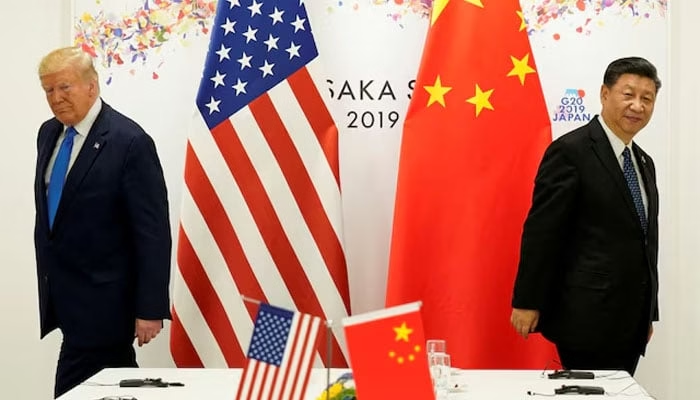Beijing: In response to the United States’ tariffs on Chinese imports, China has retaliated by imposing a 10-15% tax on goods imported from the U.S., further escalating the ongoing trade war between the world’s two largest economies.
China Strikes Back with Tariffs on U.S. Imports
After the U.S. announced new tariffs on Chinese goods, China has taken swift action by imposing its own levies on key American exports, including oil, gas, and auto products.
A statement issued by the Chinese Ministry of Finance confirmed that:
- A 15% tariff will be imposed on coal and gas products imported from the United States.
- A 10% tariff will apply to American crude oil and auto products.
These new tariffs are set to take effect on February 10, marking a significant escalation in the trade conflict.
Why Did China Impose Tariffs?
The latest move by China comes as a direct response to the Trump administration’s aggressive trade policies, which recently introduced tariffs on imports from China, Canada, and Mexico.
U.S. Tariffs on China, Canada, and Mexico
The Trump administration had earlier announced tariffs on various Chinese imports, citing concerns over unfair trade practices and intellectual property theft.
However, this decision was met with strong opposition from China, Canada, and Mexico, leading to a series of retaliatory measures.
- Canada and Mexico quickly imposed their own tariffs on American goods.
- After intense negotiations, President Trump postponed tariffs on Canada and Mexico for a month, prompting both countries to temporarily withdraw their retaliatory measures.
- However, China’s response was swift, demonstrating its firm stance in the trade battle.
The Economic Impact of the U.S.-China Trade War
The tit-for-tat tariffs between the U.S. and China are expected to impact global trade and increase economic uncertainty.
Key Sectors Affected by Chinese Tariffs
- Energy Sector:
- The 15% tariff on coal and gas imports will directly impact U.S. energy companies, making it more expensive for China to buy American energy resources.
- This move could force China to look for alternative suppliers like Russia and the Middle East.
- Oil Industry:
- A 10% tax on U.S. crude oil will make American oil less competitive in the Chinese market.
- This could lead to a decrease in U.S. oil exports, affecting major oil-producing states like Texas and North Dakota.
- Auto Industry:
- The 10% tariff on American auto products will hurt major U.S. car manufacturers like Ford and General Motors, making American vehicles more expensive for Chinese consumers.
Could This Lead to a Full-Scale Trade War?
With both countries continuing to impose tariffs, experts warn that this could escalate into a full-scale trade war, which could:
Increase prices for consumers in both nations.
Disrupt supply chains and slow down global economic growth.
Hurt businesses that rely on international trade.
The biggest concern is whether the U.S. and China will reach a trade agreement or continue to retaliate with more tariffs.
Will There Be Negotiations?
So far, neither country has backed down, but there have been ongoing negotiations to de-escalate tensions.
- China has signaled openness to discussions but insists that the U.S. should remove unfair restrictions.
- President Trump, on the other hand, has maintained that the tariffs are necessary to protect American businesses from China’s unfair trade policies.
With the February 10 deadline approaching, all eyes are on how the U.S. and China will respond in the coming weeks.
- Will the U.S. impose further tariffs?
- Will China escalate the trade war?
- Could both sides reach a deal before the situation worsens?
The Trade War Continues
The U.S.-China trade war shows no signs of slowing down, with both nations imposing new tariffs in an attempt to pressure each other.
While China’s latest tariffs are a strong message to the U.S., the uncertainty surrounding trade relations could impact businesses, consumers, and the global economy in the months to come.



